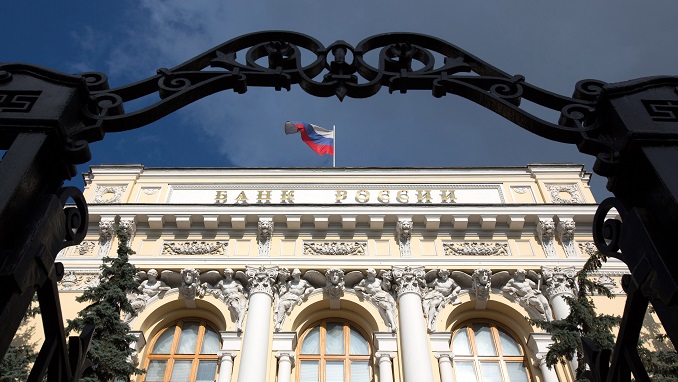Inflation is rousing back to life and pressing on the Russian economy even before it comes to terms with the ruble’s worst month since 2015, Bloomberg reports.
Little now stands in the way of an upswing in consumer prices from near their lowest level in Russia’s modern history, after signs appeared that sluggish recovery is gaining traction. To make things worse, the ruble, pressed by U.S. sanctions on Russian businessmen, companies, and officials, lost over 9 percent against the dollar in the world’s second-worst performance in April, threatening to fan the cost of imported goods.
A depreciation of 10 percent may add a percentage point to inflation, according to the central bank’s research and forecasting department.
Data due as early as Friday will show that annual inflation in April accelerated for a second month to this year’s high of 2.5 percent, according to the median of 23 forecasts in a Bloomberg survey.
“The scale of a pickup in inflation will still depend on the scale of demand recovery,” said Dmitry Polevoy, an economist at ING Groep NV in Moscow. “Optimism among consumers has indeed continued to improve, but their interest in savings still remains, given the overall uncertainty.”
As sentiment improves during a recovery from Russia’s longest recession this century, the central bank said for the first time last week that given stronger business activity, it’s no longer helping to hold back price growth, which paves the way for inflation to return to the target of 4 percent. Now companies also have to contend with a weaker ruble in the wake of the latest U.S. sanctions and a resurgent dollar. IHS Markit’s Russia Manufacturing Purchasing Managers’ Index showed cost burdens for producers rising “markedly” in April.
The threat of inflation has prompted the central bank to halt a process of interest rate cuts which began last year. The Bank of Russia decided to maintain the key rate at 7.25% on April 27, after the meeting of its Board of Directors.
At the previous meeting of the Board of Directors on March 23, the regulator lowered the rate by 25 basis points (0.25 percentage points) against the previous level of 7.5% in a background of record low inflation.












